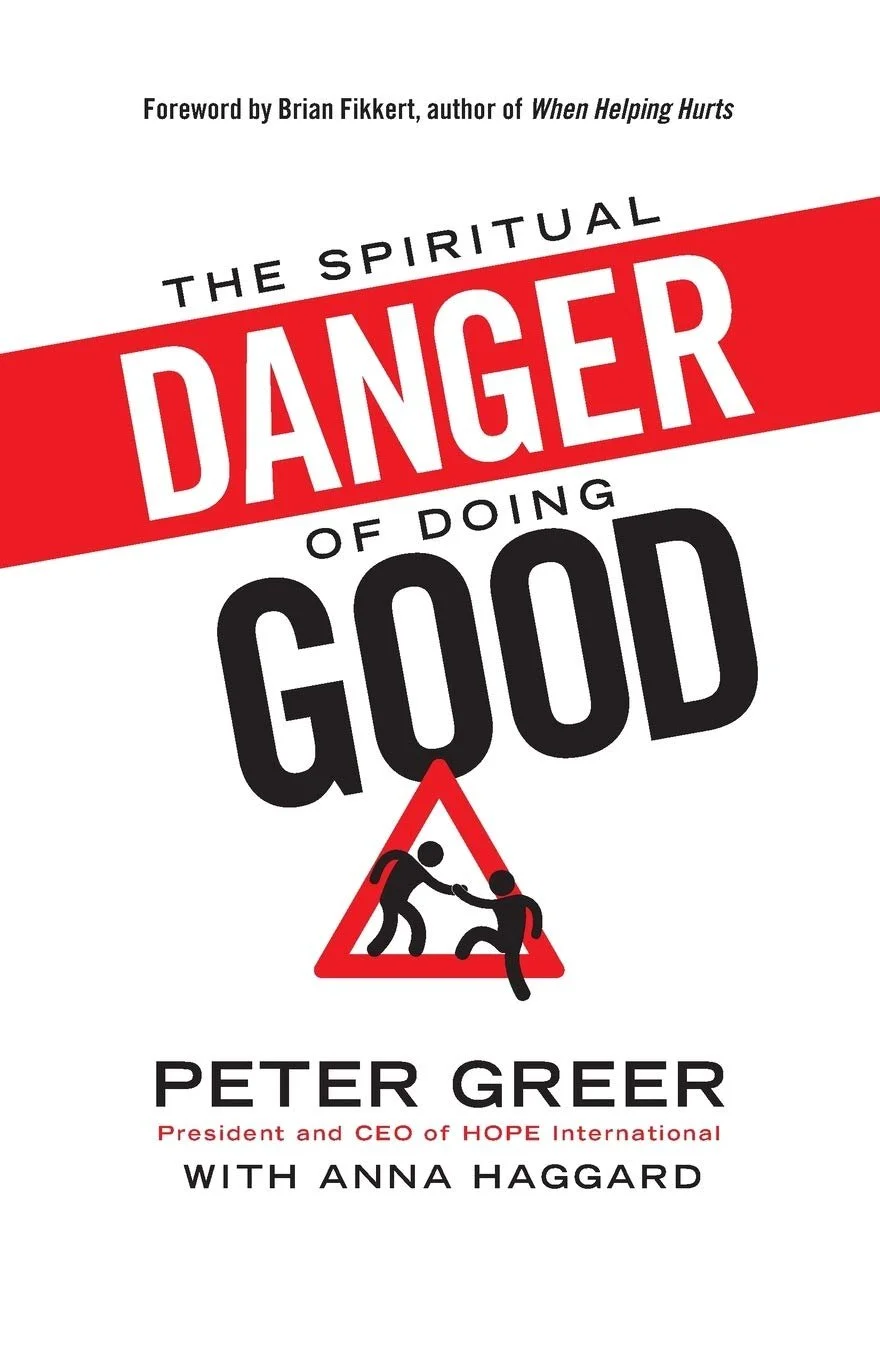The Spiritual Danger of Doing Good
In recent years, conversations about charity and community service have begun to focus more and more on the ways in which charity can be toxic and helping can hurt. We’ve been reminded that when it comes to international relief and development, good intentions are not enough. These are timely and crucial reminders—timely because there are more nonprofits starting up than ever before, and crucial given the weight of the problems they are aiming to address. Those sparking these conversations (at times rather provocatively) have helped countless individuals, churches, small nonprofits, and large NGOs to more faithfully walk with the poor without doing harm.
The Spiritual Danger of Doing Good, the new book from Peter Greer (@peterkgreer) of HOPE International, has some obvious parallels with books like Toxic Charity and When Helping Hurts, but while these existing works focus primarily (though not exclusively) on the harm we can do to others despite the best of intentions, Greer’s book turns our attention inward, asking us to consider the ways in which charity and community service all too often set us up to fail as people—as husbands, wives, fathers, friends, and most significantly, as followers of Christ. The point is not to remain permanently fixated on ourselves, of course; instead, we closely examine the inner workings of our hearts from time to time precisely because who we are shapes what we do, and what we do inevitably impacts others, for better or worse.
Though some aid bloggers and critics (and some pastors, for that matter) are given to rather uncharitable jeremiads against what they perceive as the status quo—thus risking the loss of trust among those who find themselves indicted by their screeds—Greer avoids the same counterproductive reaction by writing a book that from start to finish is consistently winsome and characterized by humility, while addressing difficult truths.
Rather than prescribing specific one-size-fits-all fixes, Greer instead appeals to pain points we’ve all experienced, and he shares what has helped him as he has wrestled with them along the way. Among these themes are the dangers of throwing oneself so entirely into the cause that only leftovers remain for loved ones; of justifying moral lapses “for a good cause”; of living with a sacred-secular dualism; and of failing to build relationships marked by accountability.
Greer’s honesty about the ways in which he has learned these lessons the hard way is refreshingly disarming, and will give many readers the courage and freedom to face up to their own failures and to grow into the kinds of servants and leaders God has created them to be.
From pastors to social workers to globe-trotting humanitarians, and all sorts of others in between, this book is essential reading for those serious about cultivating lives of integrity that matter for those they seek to serve.
